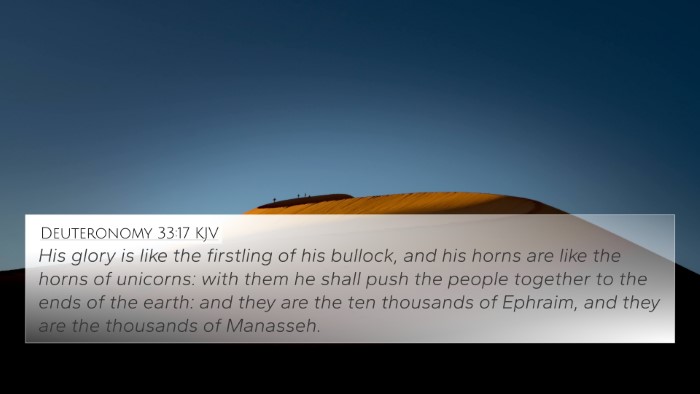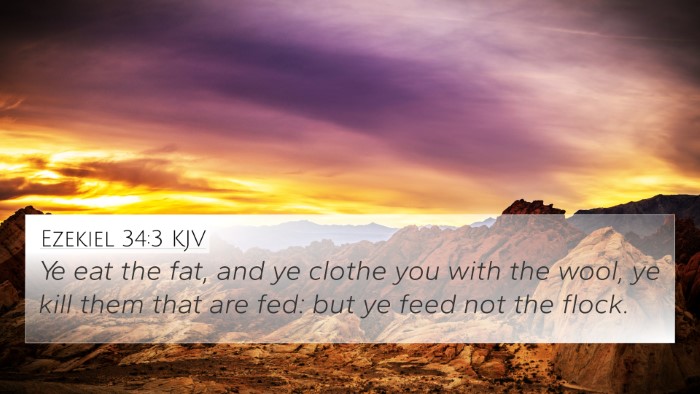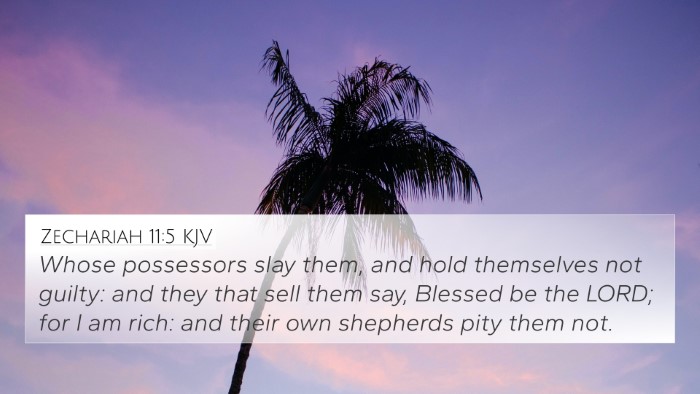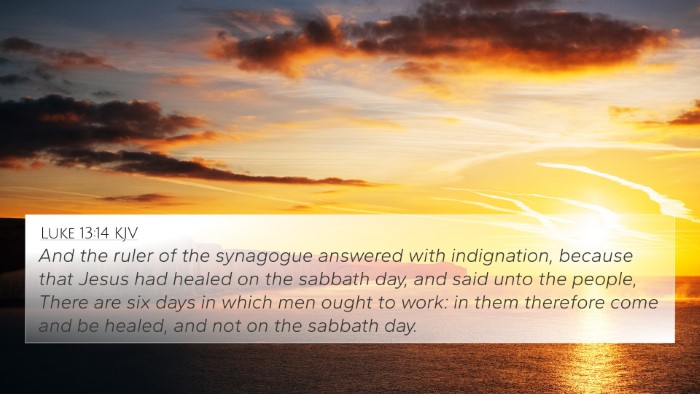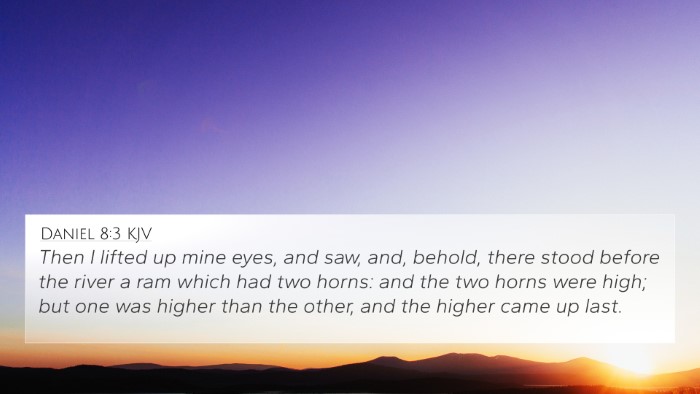Ezekiel 34:21 - Summary of Meaning and Commentary Insights
Ezekiel 34:21 states: "Because you thrust with side and shoulder, and pushed all the diseased with your horns, till you have scattered them abroad." This verse addresses the actions of the shepherds of Israel, metaphorically denoting their failure to care for the weak and the needy among their flock. The prophet Ezekiel condemns the leaders for their brutality, exploitation, and lack of compassion.
Understanding the Context
In the broader context of Ezekiel 34, God compares Himself to the unfaithful shepherds of Israel. Through this passage, Ezekiel articulates the consequences of mismanagement among Israel's leaders. The imagery of the flock signifies the people of God, and the shepherds represent their rulers, who failed to protect and nourish them.
Insights from Commentaries
-
Matthew Henry:
Henry explains that the shepherds are reproached for scattering the sheep instead of gathering them. He emphasizes that good shepherds must care for the weak and the broken, symbolizing God’s desire for love and compassion in leadership. The action of thrusting and pushing reflects the abuse of power and signifies the danger of failing to defend the vulnerable.
-
Albert Barnes:
Barnes highlights the cruelty of the shepherds, suggesting that their misconduct is synonymous with causing injury and hardship to those they ought to protect. He connects this misconduct to the overarching theme of divine judgment and emphasizes the need for accountability among leaders.
-
Adam Clarke:
Clarke points out that the act of pushing with horns conveys the leaders' aggression towards the weaker members of society. He notes that this verse serves as a warning of the disastrous consequences of neglect and cruelty among leaders. Clarke also asserts that genuine shepherds should possess a heart of compassion.
Bible Verse Cross-References
The themes within Ezekiel 34:21 can be further understood through various related scriptures. Here are some significant cross-references that elucidate the responsibilities of leaders and the nature of divine shepherding:
- John 10:11-14: Jesus identifies Himself as the Good Shepherd, contrasting His protective nature against the hired hand who abandons the sheep.
- Psalms 23:1-3: This psalm reinforces the image of God as a shepherd who provides and cares for His flock.
- Isaiah 40:11: Highlights God's gentle approach towards His people, guiding them like a shepherd with tender care.
- 1 Peter 5:2-3: An instruction to church leaders to shepherd the flock willingly and not under compulsion, echoing the need for responsible leadership.
- Jeremiah 23:1-2: A warning against shepherds who destroy and scatter the sheep, showing God's anger towards negligent leaders.
- Matthew 9:36: Jesus’ compassion for the crowds is likened to a shepherd’s concern for sheep without a shepherd.
- Hebrews 13:17: Calls for the congregation to obey and submit to their leaders, underlining the serious nature of the shepherding role.
- Micah 3:1-3: Condemns the unjust leaders who abide by perverse methods, echoing Ezekiel's sentiments regarding leadership failures.
- Ezekiel 34:10: Illustrates God’s plan to hold the shepherds accountable for their actions towards His flock.
- Luke 15:4-7: The parable of the lost sheep, demonstrating God's initiative to seek and save the lost, as a reflection of true shepherding.
Connecting Themes in Scripture
In analyzing Ezekiel 34:21 in conjunction with the related passages, we delve into the thematic connections that emphasize divine care and the responsibilities of leaders. The recurring motif of shepherding in Scripture underscores the importance of compassion, accountability, and protection, demonstrating God's heart towards His people.
Cross-Referencing Biblical Texts
Cross-referencing biblical texts enhances our understanding of Ezekiel 34:21 and the role of shepherds. These comparisons reveal a consistent theology regarding leadership's sacred duty to protect, nurture, and guide their followers. By studying these relationships, believers can draw deeper insights and apply these lessons to contemporary leadership contexts within the church and society.
Conclusion
Ezekiel 34:21 provides rich insights into the nature of spiritual leadership and the consequences of neglecting responsibilities towards the flock. Through the analysis of related verses, we understand the dire importance of godly leadership, the compassionate nature of God as a shepherd, and the urgent call for accountability among those in positions of power.
Call to Action
For those seeking to deepen their understanding of biblical themes and connections, employing tools for Bible cross-referencing can enhance your study. Engage with commentaries, utilize a Bible concordance, and explore cross-reference guides to enrich your scriptural exploration and strengthen your faith journey.



